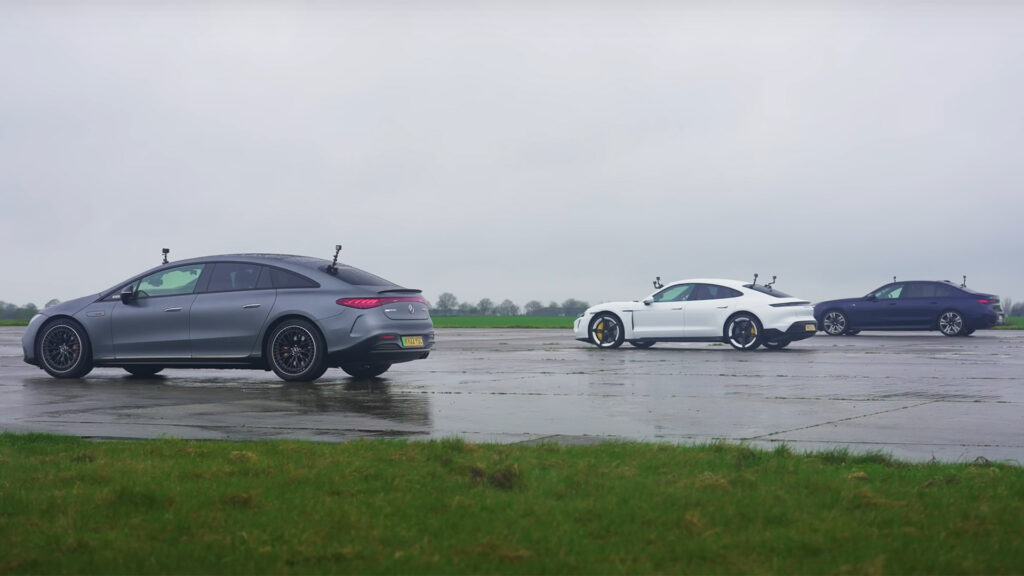When Porsche launched the Taycan Turbo S, it was the quickest electric sedan after the Tesla Model S but it’s been a few years since it hit the market and rivals including Mercedes-Benz and BMW have also released fast and powerful electric sedans of their own.
Eager to work out if Mercedes and BMW have caught up to Porsche and the Taycan Turbo S, CarWow brought together a Mercedes-AMG EQS 53 and a BMW i7 50 and proceeded to race them against the Porsche. While you may be able to reasonably guess what happens in the races, it’s still worth a watch.
Read: 1,000 HP Porsche Taycan Turbo GT Will Show The Tesla Model S Plaid Who’s Boss
On paper, the Taycan Turbo S has the advantage. Indeed, its two electric motors combine to pump out 750 hp and an almighty 774 lb-ft (1,050 Nm) of torque. By comparison, the Mercedes-AMG EQS 53 produces 649 hp and 700 lb-ft (950 Nm) but the car featured in this test was equipped with an available performance pack that includes an overboost function that increases grunt to 750 hp and 752 lb-ft (1,020 Nm) of torque.
Then we have the BMW, bringing up the rear with ‘only’ 544 hp and 550 lb-ft (745 Nm). It’s important to note that the BMW i7 50 is the only one you can get in the UK right now and not the most powerful version available, as that would be the 650 HP i7 M60.
Given the significant power disadvantage that the BMW i7 50 is at, it comes as no surprise that it is blown out of the water by the other two. However, the Porsche and the Mercedes-AMG are more closely matched than you might expect.
The Mercedes-AMG EQS 53 is able to get the jump off the line in both of the drag races but as the speeds start to build, the Porsche closes in and overtakes it, helped in part by the fact that it weighs roughly 300 kg (661 lbs) less than the EQS. It ultimately finished the quarter-mile in 11.4 seconds compared to the 11.5 seconds of the Mercedes and the BMW with a time of 12.7 seconds.



